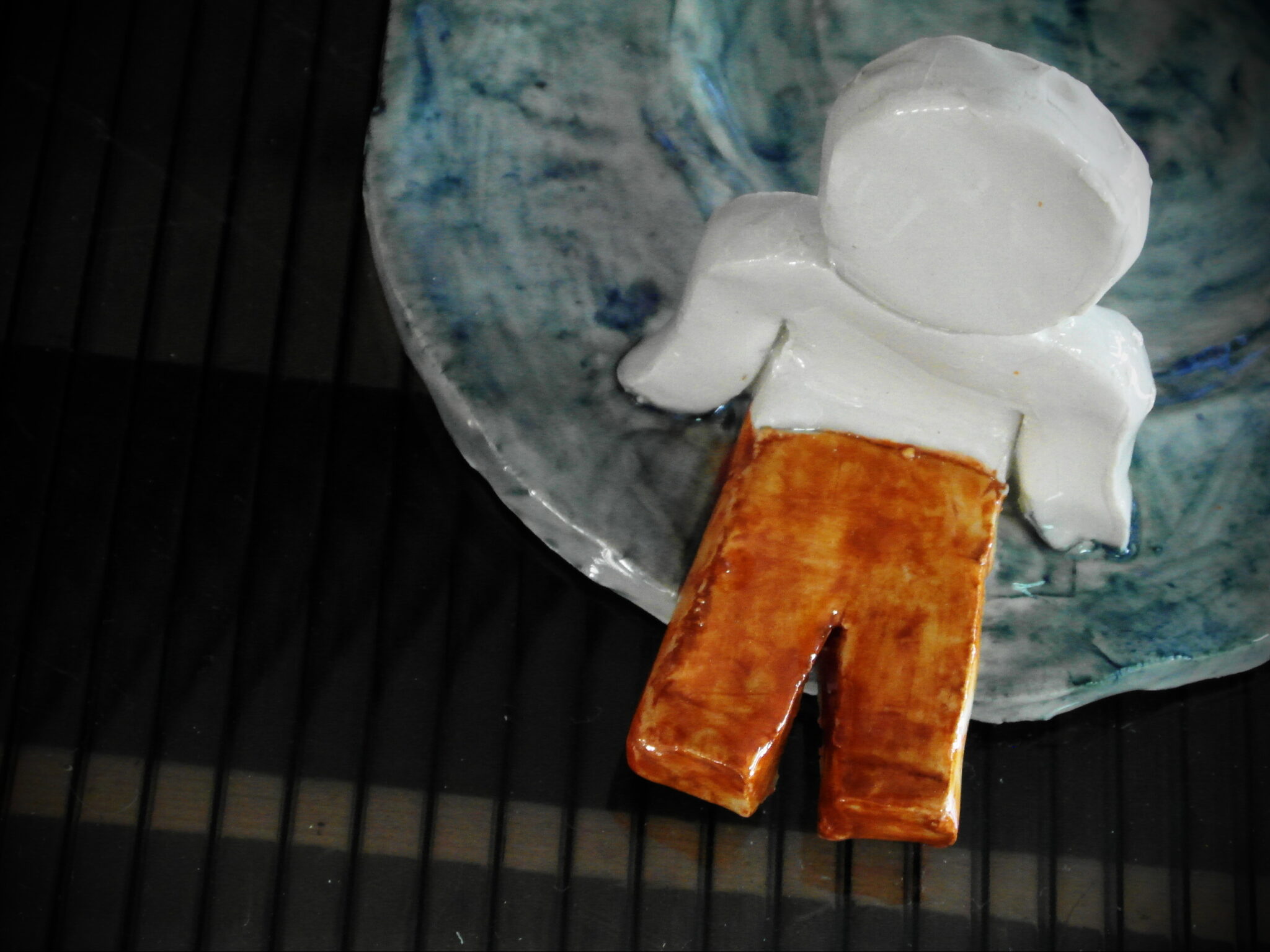CONDITIONS TREATED
ABOUT THERAPY
Codependance therapy Bournemouth
Simply put, it is a need to be needed in a relationship, in order to avoid the possibility of being abandoned.
This need to be needed stems from a deep insecurity, usually developed through childhood experiences, particularly where less than ideal attachment bonds were formed with parents.
Low self-esteem and low self-worth lead the sufferer to believe deep down (usually at an unconscious level) that they will never be wanted and therefore in order to experience a loving relationship they will have to be needed.
To quote the great Melody Beattie “What is a codependent? The answer is easy, they’re some of the most loving, caring people I know.”

They are natural “caretakers” who can literally lose themselves in other people, becoming enmeshed in them to the point of causing their own continued and unnecessary suffering
Melody further describes her definition of a codependent person as “one who has let another person’s behaviour affect him or her, and who is obsessed with controlling that person’s behaviour” ie fixing it! When in truth, in many cases, the wise action, in terms of self-preservation and sanity would be to walk away.
Codependents invariably put others before themselves, (which we are usually taught to do, particularly as children, at least spiritually) but codependents do this to the point of their own detriment!
Like all things in the universe it is about balance and codependents usually get this balance very wrong. This can lead to attempts to manipulate others into behaving how they wish, in order to obtain a feeling of security. Invariably this fails (because we cannot successfully control others) leading to feelings of anger, and further inadequacy. It also invariably leads to resentment from the other person involved.
The term codependent, itself, originates from the AA 12 step fellowship and was used to describe the relationship dynamic so frequently seen where the addict and long-suffering partner actually help to keep each other sick, albeit, usually inadvertently.
Al-anon defined co-dependents as “people whose lives had become unmanageable as a result of living in a committed relationship with an alcoholic” (although it essential to understand that codependence is not confined to relationships with alcoholics, it can be with any addict, mentally disturbed or abusive person).
– the giver creates a circular relationship by enabling the addict or taker (please don’t leave me, I will do anything – for example going to the store to get them some more vodka)
Just as the addict is dependent on the substance, the codependent is dependent upon them, setting up a dynamic that keeps everyone sick.
They are “other referenced” rather than self-referenced, depending more on others and their relationships as a source of happiness than themselves. Whilst total “self-reference” would be neither desirable nor realistic, this must be balanced with an ultimate ability to be self-reliant at least about their own ability and potential, to form new and additional relationships, rather than being totally obsessed with the one(s) they are so painfully enmeshed in.
The DSM-V interestingly doesn't recognise codependence as a mental health condition and as previously mentioned society itself, considers it a desirable trait to put others first, but like all things in extremes, codependence can be a major problem leading to further issues such as love addiction and being abused.
Am I co-dependent?
Do you try at all costs to preserve relationships (with romantic partners, family and even friends) even when you know deep down the wisest and probably most beneficial thing you could do for yourself (and probably the other person) is to leave? If the answer to that question is a resounding yes then you probably are.
For further enquiry or guidance on examining this important question, contact us now
You can also find help from a 12 step fellowship similar to AA devoted to this issue called CODA.org
Coda.org have a full list of criteria and characteristics to help with self-diagnosis, but in my experience, the summary below will give you a good indication as to whether you are suffering the adverse effects of codependence if you can relate to 10 or more the answer is probably yes
Codependents often. . . :
- minimize, alter, or deny how they really feel.
- perceive themselves as completely unselfish, considerate and dedicated to the well-being of others.
- attempt to mask their own pain in various ways such as using anger, humour, or isolation.
- can express negativity or aggression in indirect and passive ways.
- fail to recognize the unavailability of those people to whom they are attracted.
- judge what they think, say, or do harshly, and as never good enough.
- value others’ approval of their thinking, feelings, and behaviour over and above their own.
- do not see or consider themselves as lovable or worthwhile people.
- have trouble setting healthy limits, priorities and boundaries.
- are extremely loyal, remaining in harmful situations too long.
- compromise their own needs, values and integrity to avoid rejection or anger.
- put aside their own interests in order to do what others want.
- give up their truth/reality to gain the approval of others or to avoid change.
- believe those they love are incapable of taking care of themselves.
- attempt to convince others what to think, do, or feel.
- frequently offer advice and direction without being asked.
- become resentful or angry when others decline their help or reject their advice.
- lavish gifts and favours on those they want to influence.
Please refer to the Coda website for a full list and further info
The Goal
The goal is to move from a position of thinking and/or feeling “this person IS my life” to “I HAVE a life and whilst this person is important in it, they remain a guest!”
Or to look at it another way it is a journey from being the family dog to becoming the family cat –
The following audio clip, of a share by Carl H from Calgary, during an Al-Anon meeting some years ago, demonstrates this analogy beautifully. The clip is also transcribed but I would strongly advise you to listen to it, as it is far more powerful when experienced with Carl's own voice.
“It's an analogy.
And as you know, analogies are never perfect, but this one's pretty good.
Before the program, I used to be very much like the family dog.
An absolutely important member of the family and loveable as can be and do anything you wanted to do.
I could run errands, I could fetch, I could guard you. And you know, dogs can be detectives. We can sniff things out, we're rescuers. We rescue people in the snow in the Swiss Alps. We have convenient little kegs of brandy around our throats to enable some people 🙂
And dogs, of course, need to be taken care of a little bit, and we have to be taken out for walks and a good run. And if you're not ready to do that, that's OK…..We can wait …..and wait, …..and wait, and wait. And when you're finally ready, we are so grateful, … so grateful.
But that was before program, now, nearly 23 years later, I am much more like the family cat.
I'm just as lovable and just as important a member of the family as that damn dog, and I love you and you love me.
I share my life with you and you share your life with me. But you are not my life! I have a life!
I won’t do everything you want me to do, but I'll do a lot of things that I want to do!
And if you're in trouble, I can’t rescue you. But I'll listen to you and I'll make you feel better just by listening and I'll jump into your lap and make you feel good. And I'll put my paws around you and I'll tell you, I love you and I'll purr and you'll feel better.
But don't ask me to do that when I'm napping! You wait until I get up!
And then I probably am hungry and I have to go have a bite to eat, so you just wait a little bit and after that, I’ll have a drink and I have to wash up, you know, that's what we cats do.
And if it's near three o'clock, you know, I go out the back and I have to inspect the back yard. I've got work to do out there. They're expecting me. I got mice to chase. And I got birds to scare. And there's a nasty dog about four houses down. I give him obedience lessons every day. And when I come back, maybe your problem will be solved and we won't even have to bother with it. But if we do, I'll jump into your lap and also I put my paws around you and I'll hug you.
Well, that's the end of the analogy. Meow.”
What can be done about Codependency?
One must begin by looking at their own insecurity, the series of articles I wrote about Loving ourselves would be a good place to start.
As previously mentioned Coda.org can also be a great source of inspiration and support.
And of course, we are here to assist and support you with the therapy you need to continue your exploration and recovery.
For help, take that first step now and contact Dolphin Hypnotherapy for a half-price initial assessment consultation with no obligation, please telephone Dolphin Hypnotherapy Practice on 07790 333431 (24 hours), or BOOK ONLINE now, using voucher code INITIALAC (and be sure to click apply).
(Please note that in the event of non-attendance or cancellation with less than 48 hours notice, our standard consultation fee will be charged).
SHARE US
JOIN US
Copyright © 1994 – 2018 T. Roberts, Dolphin Hypnotherapy Bournemouth and Poole, Dorset. All rights reserved. – Areas we cover include, but are not limited to, the following towns and villages throughout Dorset, Hampshire and Wiltshire – Bournemouth, Boscombe, Southbourne, Poole, Parkstone, Branksome, Sandbanks, Westbourne, Ferndown , Christchurch, Highcliffe, New Milton, Lyndhurst, Lymington, Swanage, Studland, Wareham, Blandford, Sturminster Newton, Shaftesbury, Dorchester, Weymouth, Bridport, Merley, Wimborne, Broadstone, Corfe Mullen, Fordingbridge, Verwood, Ringwood and Salisbury.

